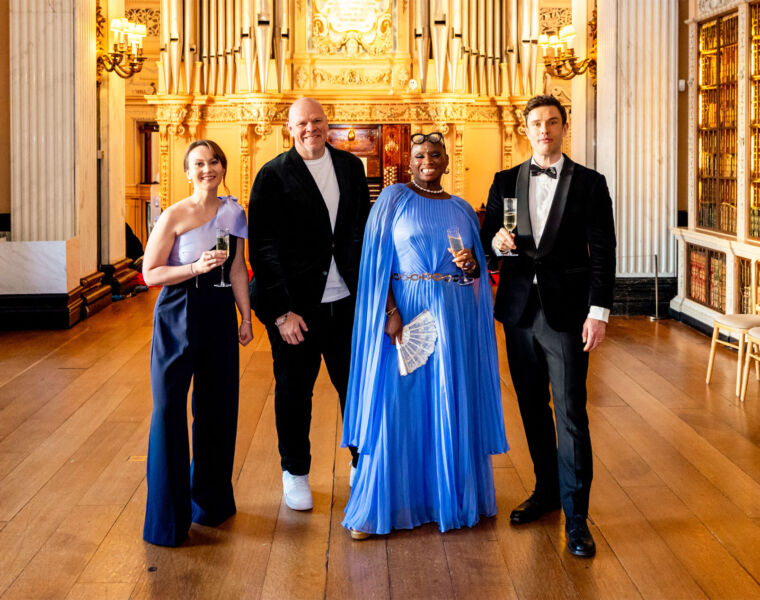
Hardwired into our genes is an innate capacity to form social connections with others, which frequently leads to strong friendships. We form and join social circles that can sometimes last a lifetime; however, we can also find ourselves outgrowing them. In this guest feature, certified life coach Lorena Bernal explains how to navigate the process of forming, maintaining, and nurturing friendships as we evolve.
Friendships are vital for our well-being. The connection with others keeps us fulfilled and joyful, allowing us to share our lives, support each other, celebrate wins, and console losses. Friends are witnesses to our lives; we choose them and keep them not out of obligation but because we need what they bring into our lives. However, as we grow and evolve, it’s natural for our social circles to change. Here’s how to navigate this process and maintain your confidence while forging new connections.
Understanding the Nature of Friendships

Friendships come in many forms. Childhood friends often change as we grow, especially if we move to different places. Some friendships are forged during intense, life-changing moments and can last a lifetime due to the deep connection they build. Others are more situational, like friendships made just to have fun, through our children’s school or at work.
It’s healthy to recognise these different types of friendships and understand that while some may last, others are meant to be temporary. People come into our lives to teach us something, share experiences, and help us through specific periods. It’s okay when paths separate, as this is a natural part of life.
Why Do We Outgrow Friendships?
Outgrowing a social circle is quite common and can happen for various reasons:
Moving Away: When you relocate, it’s challenging to maintain old relationships as you need to make new friends in your new environment. These new friends meet the current version of you, free from past judgments, and this fresh start can be incredibly enriching for both parties.
Life Changes: As our children grow, we might find we no longer have common ground with friends we met through school activities. Similarly, divorces and other significant life changes can shift our social dynamics.
Personal Growth: As we mature and evolve spiritually or intellectually, we might find that we no longer align with certain friends. It’s essential to recognise that it’s okay to grow apart from people who once felt like family.

Managing the Emotional Impact
Realising that you’re outgrowing your social circle can trigger a range of emotions, from sadness to relief. Here are some ways to cope with these feelings:
Acknowledge Your Emotions: Feeling a sense of loss or discomfort when friendships change is normal. Allow yourself to grieve the end of an era while also embracing the possibilities of new connections.
Self-Reflection: Take time to understand why you feel the way you do. Are you seeking deeper connections, or are you outgrowing activities and conversations that no longer resonate with you?
Maintain Confidence: Don’t let the end of old friendships affect your self-esteem. Personal growth is a sign of progress, not failure.

Navigating Tough Conversations
If you wish to maintain certain friendships despite the changes, open and honest conversations are crucial. Here’s how to approach them:
Be Honest and Respectful: Explain that you feel you’ve grown in different directions and need time to explore your new interests. Emphasise that it’s not about changing them but about respecting each other’s paths.
Address Hurt Feelings: If your friends feel hurt or confused, address their feelings honestly. Let them know that this is about personal growth and not a reflection of their worth.
Gradual Distance: If a direct conversation feels too daunting, you can choose to distance yourself gradually. This approach can be less confrontational but still allows both parties to adjust to the change.

Keeping Friendships Alive
Sometimes, we genuinely want to keep a friendship that seems to be slipping away due to distance, busyness, or other factors. Acknowledge why you want or need that person in your life. If it stems from the love you have for them, make sure you act on it.
Text them, call them, and make sure they feel your care. Even if life is pulling you apart, show them that you still love and want them in your life. This effort ensures they don’t misinterpret the distance as disinterest or rejection.

Dealing with Hurt in Friendships
Sometimes, a friend may hurt you, and it becomes hard to see them in the same light. They may have done something truly painful, perhaps more than once, making you question the continuation of the friendship. Before acting, ensure you are at peace with your decision.
Don’t act from a place of hurt or anger. Decide if you want to forgive and continue or forgive but not forget and end the friendship. If you choose to end it, approach the conversation with the love you once had, accepting that they are not good for you anymore without attempting to change them.
Embracing New Friendships
As you navigate these transitions, it’s important to remain open to new friendships. Here are some tips:
Engage in New Activities: Join clubs, take classes, or participate in community events that interest you. These settings provide natural opportunities to meet like-minded individuals.
Be Open and Approachable: Show genuine interest in others, and don’t be afraid to share parts of your journey. Authenticity attracts authentic connections.
Stay Positive: Keep a positive outlook when meeting new people. Every new person you meet has the potential to enrich your life in unexpected ways.

Conclusion
Outgrowing your social circle is a natural part of life. Friendships are essential for our happiness, longevity, and overall health. They bring joy, support, and a sense of belonging. However, the most important friendship is the one you have with yourself. Cultivating a strong, loving relationship with yourself is the foundation for building healthy connections with others.
Be at peace with the different types of friendships you encounter—don’t force them, and let go of control. Embrace the amazing and fulfilling company of people, both old and new. Human beings are incredible, and the journey of forming and nurturing friendships is one of life’s greatest gifts.
This guest editorial was written by Lorena Bernal, a certified life coach and founder of the events and coaching platform Live Love Better.
![]()




You must be logged in to post a comment.